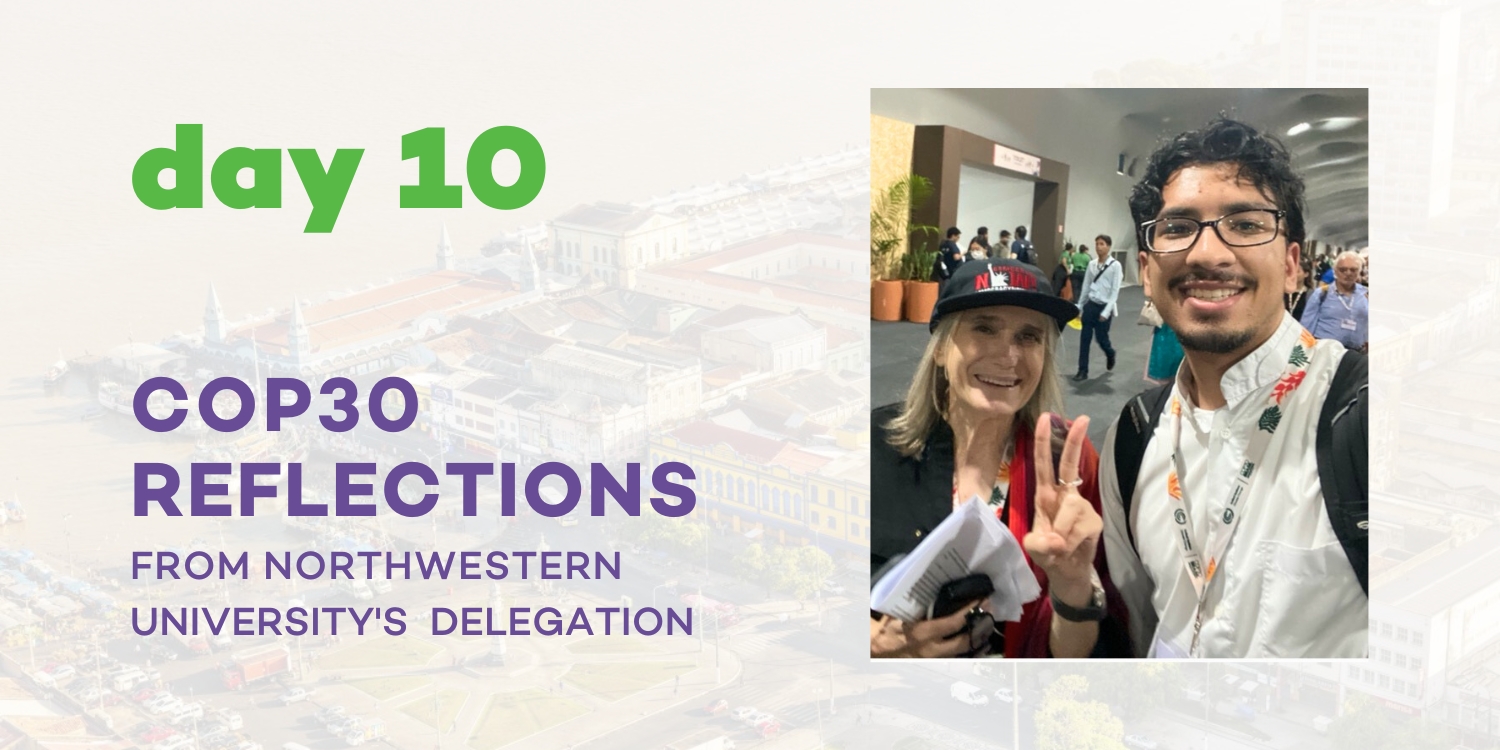Reflections from Northwestern University's COP30 Delegation: Day 10
For a fifth year, a delegation of Northwestern University students and faculty supported by the Roberta Buffett Institute is among more than 50,000 researchers, policymakers, industry leaders, and activists at the world’s largest annual international treaty negotiations and climate summit, the 30th Conference of Parties (COP30) to the United Nations Framework Convention on Climate Change (UNFCCC), held this year in Belém, Brazil. Each day, a different Northwestern delegate is blogging about their experiences and reflections. Day 10 features Yahya Arastu, a fourth-year undergraduate majoring in economics and political science with a minor in transportation & logistics.
I’m Yahya Arastu, a fourth-year undergraduate from Elgin, IL studying economics and political science with a minor in transportation & logistics. I’m interested in how countries keep themselves accountable to the promises they make at the COP, especially since these agreements cannot be formally enforced at the international level. I also want to know how the conference itself creates pressure, attention, and public scrutiny that pushes countries to follow through at home.
After leaving the apartment, we rode a dedicated COP bus to the Blue Zone, where all the negotiations take place. As a student minoring in Transportation, I’m somewhat of a connoisseur when it comes to public transit and a firm believer that Bus Rapid Transit is the way to go. I saw this in action in Belém, where the dedicated bus lanes, separated from the rest of traffic, allowed the buses branded in the COP30 livery to glide past the standstill traffic.
As we walked towards the entrance, there was a familiar sight of military vehicles and soldiers kitted out with riot shields, shotguns, and automatic machine guns--an aftermath of last week’s protests. For a democracy that claims to welcome protest, I observe a clear dissonance. This tension between freedom and security has been of much debate at the COP.
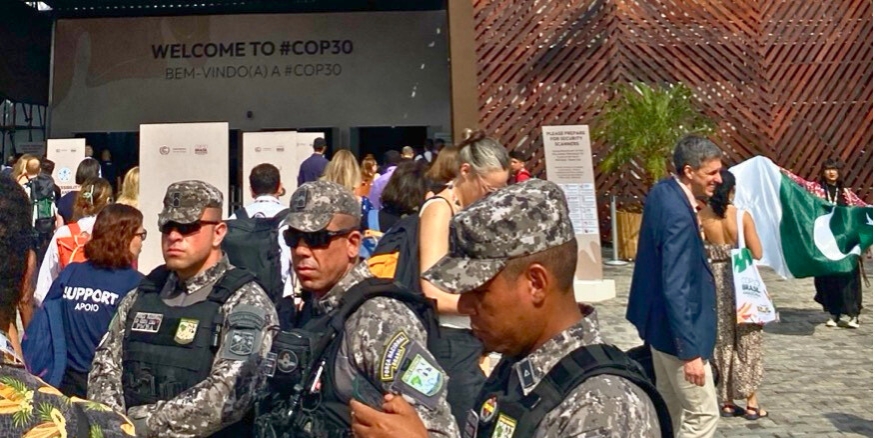
The entrance to the venue had a strong security presence
I attended the morning Research & Independent Non-Governmental Organizations (RINGO) meeting where they update university affiliates on the status of negotiations from the previous day. It’s a whirlwind experience trying to keep the different acronyms and documents straight, and I still don’t fully understand what’s going on. It is clear, however, that the COP President is trying to pass the “Mutirão Package,” an omnibus of sorts that combines various elements of climate change agenda under a single document.
After that, I walked to the EU Press Conference. A packed hall buzzed with activity as journalists probed the European Union on why they were not increasing their financial commitments. The EU delegates, ever polished and polite, stated that they have been upholding their end of the bargain. They said that other countries, even wealthier than Europe, aren’t contributing to these funds and need to pitch in their fair share, an apparent jab at the Gulf countries.
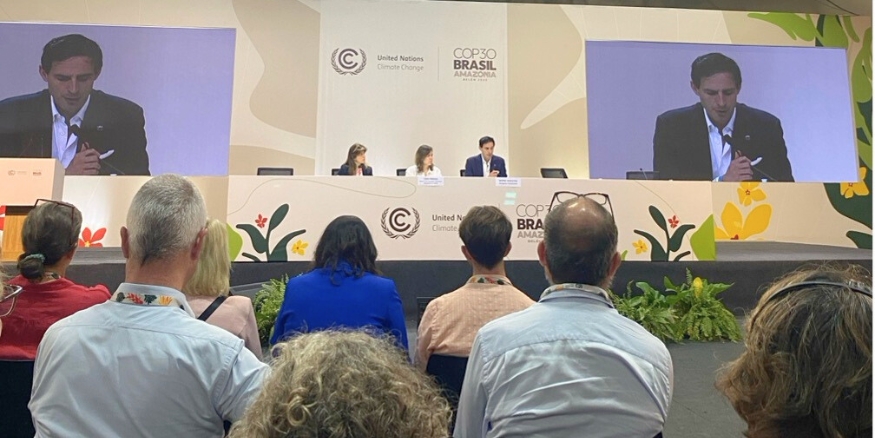
EU press conference
On my way to the next session, I ran into the producer of Democracy Now, Amy Goodman. They’re an independent media outlet and I’ve been following their content for years. It was surreal talking with her in person, and I got a mandatory selfie.
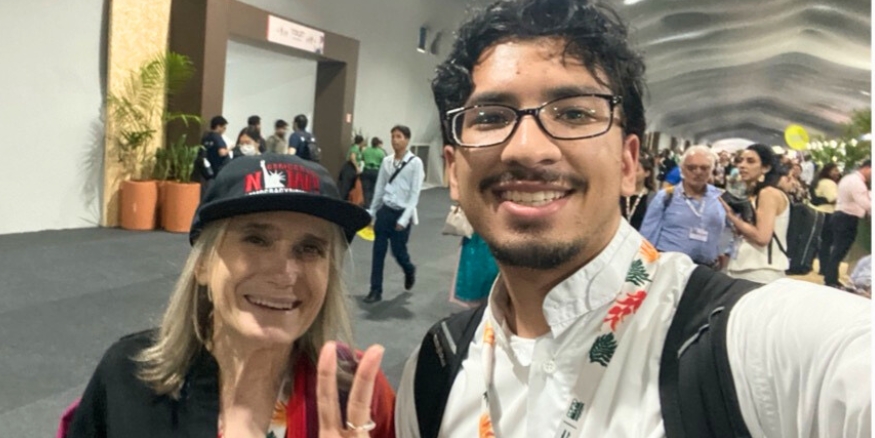
I had a brief chat with Amy Goodman, the Executive Producer of Democracy Now
The next event I attended was on the topic of NDC Implementation. NDCs (Nationally Determined Contributions) are the voluntary commitments countries make to reduce their carbon emissions. As is often the case, it’s far more difficult to deliver on a promise than to make the promise itself. A few key insights from the panelists included enabling more engagement of the private sector and taking a bottom-up approach, where civil society is involved rather than simply high-level government officials. Financial support remains a recurring theme here, as in every aspect of the COP.
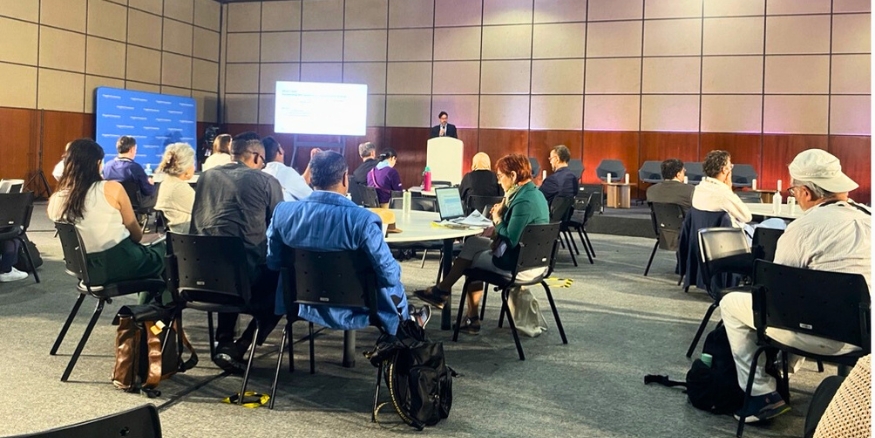
A panel titled Strategies for NDC Implementation
There’s a brief break in the early afternoon for lunch, so I went to the prayer room and offered dhuhr and asr with some West African and Indonesian delegates.
After lunch, I decided to go to an informal negotiation on Article 6.4 from the Paris Agreement. Walking into the negotiation room brought me back to my days in UN—placards with each country’s name set on rows of tables, with moderators on the dais guiding discussion. The decorum and procedures were very similar to what I had practiced in high school classrooms.
The topic at hand was carbon markets. The negotiations themselves were quite technical, focusing on specific wording changes rather than the big picture. Halfway through the session they had time allotted to “huddle” where they discussed in a big circle in the middle of the room how they wanted to proceed.
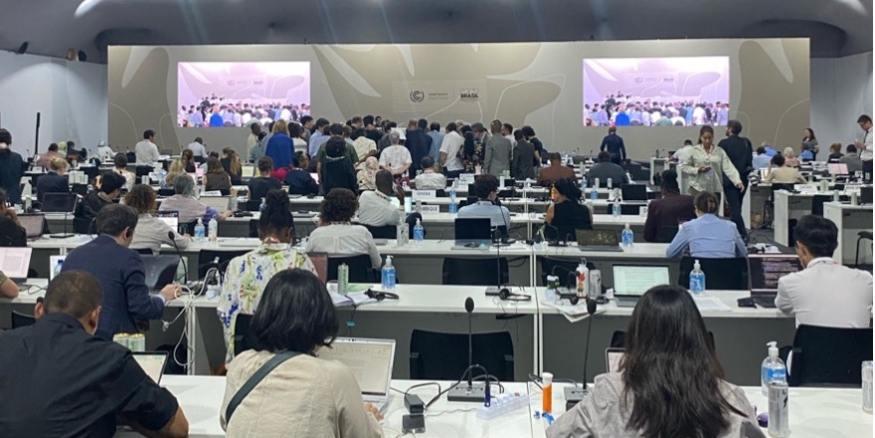
Country delegates are huddled in the center of the room ironing out language of a draft document
As the day wrapped up, I wanted to find something to do in the city itself. I was too much in the COP bubble, going door to door without exploring Belém. The conference could’ve been transplanted to any country, with its sterile air-conditioned rooms and expansive hallways. I decided to go to a show at the Theatro da Paz called Amazonia MOTIRO, an alternate spelling of the word Mutirão that’s been all over COP30. It translates to the idea of communal building toward a common goal.
The theatre was opulently decorated and looked straight of a Renaissance painting. I found the performance compelling and got a solid taste of Indigenous Brazilian culture, along with a better appreciate of the importance of the Amazon to people in this region.
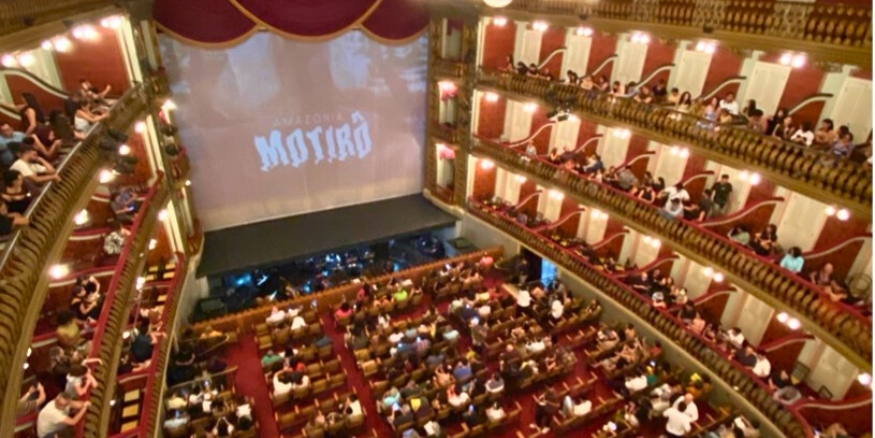
The interior of Theatro da Paz
It was too late to navigate home by bus, so I took an Uber home, ready to start it all over again.
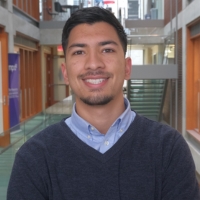 Yahya Arastu is a fourth-year undergraduate at Northwestern University majoring in economics and political science. He supports research projects at Northwestern's Global Poverty Research Lab and has conducted fieldwork in Costa Rica and South Africa, focusing on environmental governance and urban development challenges. At COP30, Yahya is interested in exploring Global South perspectives on sustainable development and how nations can balance economic growth with environmental stewardship to uplift communities while protecting natural ecosystems. He hopes to pursue a career in public sector consulting or law.
Yahya Arastu is a fourth-year undergraduate at Northwestern University majoring in economics and political science. He supports research projects at Northwestern's Global Poverty Research Lab and has conducted fieldwork in Costa Rica and South Africa, focusing on environmental governance and urban development challenges. At COP30, Yahya is interested in exploring Global South perspectives on sustainable development and how nations can balance economic growth with environmental stewardship to uplift communities while protecting natural ecosystems. He hopes to pursue a career in public sector consulting or law.

